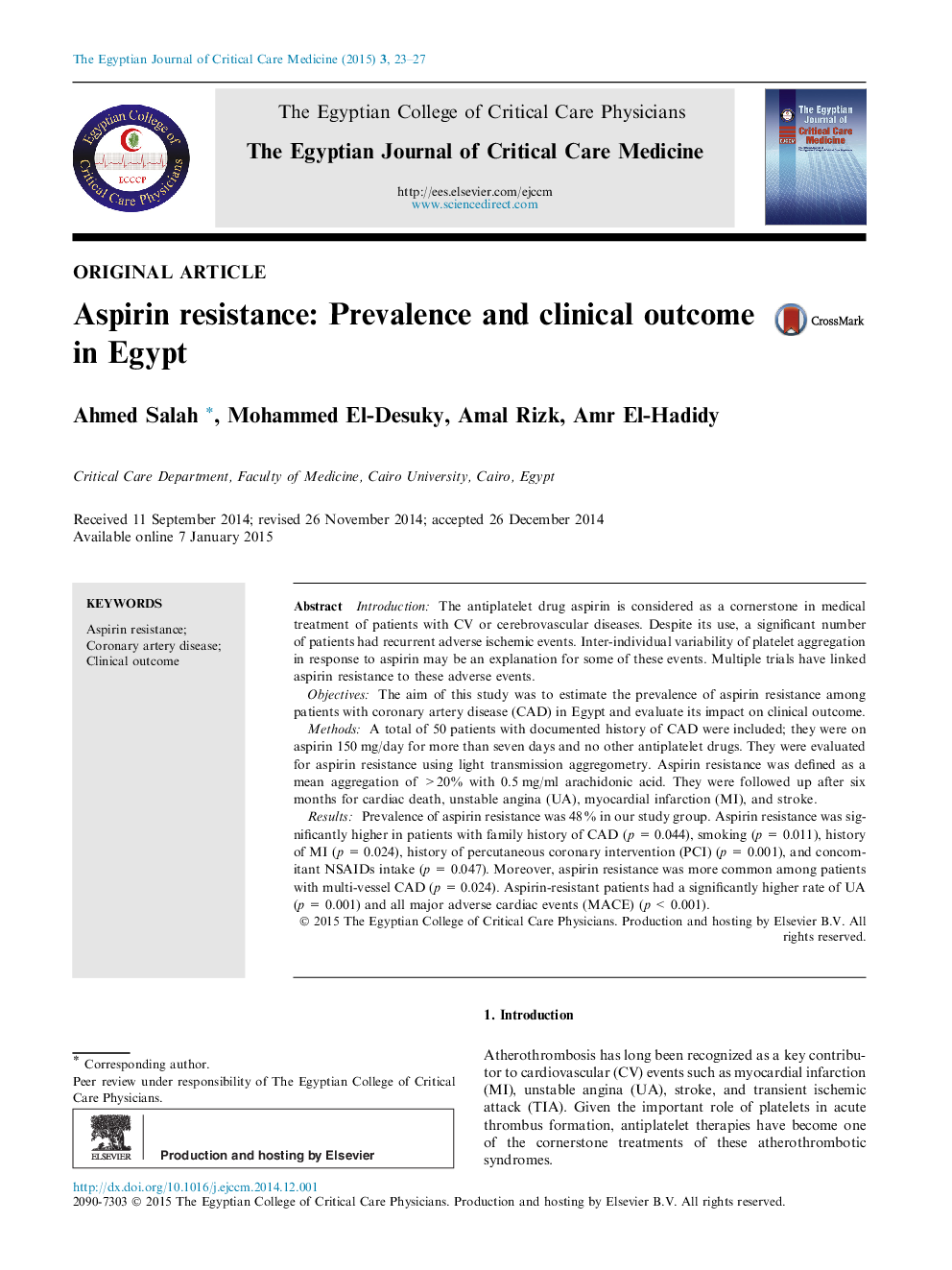| Article ID | Journal | Published Year | Pages | File Type |
|---|---|---|---|---|
| 2910874 | The Egyptian Journal of Critical Care Medicine | 2015 | 5 Pages |
IntroductionThe antiplatelet drug aspirin is considered as a cornerstone in medical treatment of patients with CV or cerebrovascular diseases. Despite its use, a significant number of patients had recurrent adverse ischemic events. Inter-individual variability of platelet aggregation in response to aspirin may be an explanation for some of these events. Multiple trials have linked aspirin resistance to these adverse events.ObjectivesThe aim of this study was to estimate the prevalence of aspirin resistance among patients with coronary artery disease (CAD) in Egypt and evaluate its impact on clinical outcome.MethodsA total of 50 patients with documented history of CAD were included; they were on aspirin 150 mg/day for more than seven days and no other antiplatelet drugs. They were evaluated for aspirin resistance using light transmission aggregometry. Aspirin resistance was defined as a mean aggregation of >20% with 0.5 mg/ml arachidonic acid. They were followed up after six months for cardiac death, unstable angina (UA), myocardial infarction (MI), and stroke.ResultsPrevalence of aspirin resistance was 48% in our study group. Aspirin resistance was significantly higher in patients with family history of CAD (p = 0.044), smoking (p = 0.011), history of MI (p = 0.024), history of percutaneous coronary intervention (PCI) (p = 0.001), and concomitant NSAIDs intake (p = 0.047). Moreover, aspirin resistance was more common among patients with multi-vessel CAD (p = 0.024). Aspirin-resistant patients had a significantly higher rate of UA (p = 0.001) and all major adverse cardiac events (MACE) (p < 0.001).
